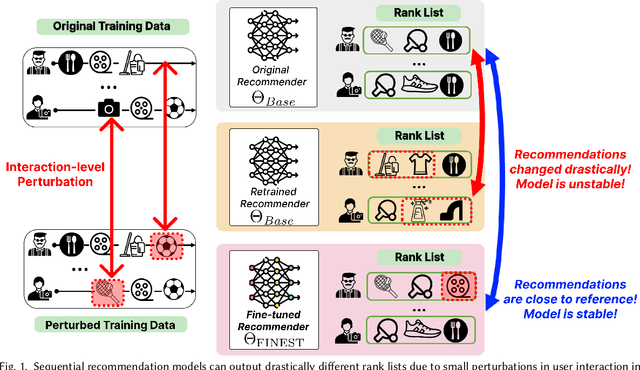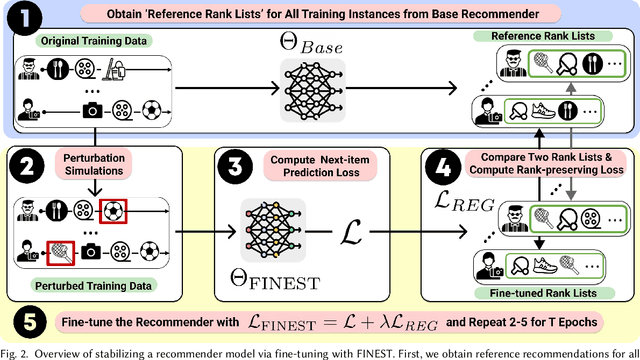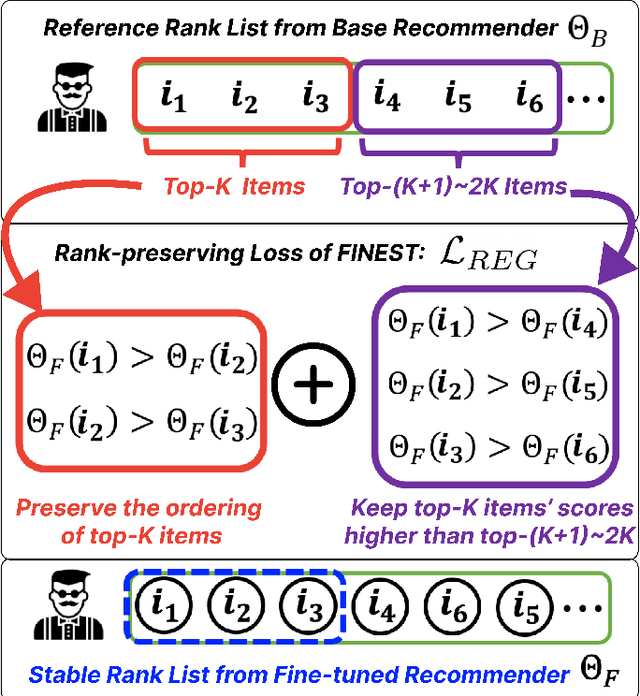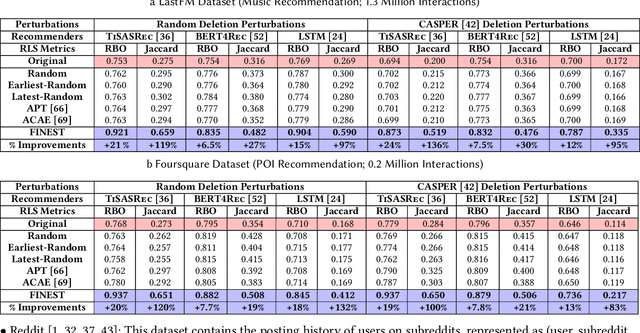FINEST: Stabilizing Recommendations by Rank-Preserving Fine-Tuning
Paper and Code
Feb 05, 2024



Modern recommender systems may output considerably different recommendations due to small perturbations in the training data. Changes in the data from a single user will alter the recommendations as well as the recommendations of other users. In applications like healthcare, housing, and finance, this sensitivity can have adverse effects on user experience. We propose a method to stabilize a given recommender system against such perturbations. This is a challenging task due to (1) the lack of a ``reference'' rank list that can be used to anchor the outputs; and (2) the computational challenges in ensuring the stability of rank lists with respect to all possible perturbations of training data. Our method, FINEST, overcomes these challenges by obtaining reference rank lists from a given recommendation model and then fine-tuning the model under simulated perturbation scenarios with rank-preserving regularization on sampled items. Our experiments on real-world datasets demonstrate that FINEST can ensure that recommender models output stable recommendations under a wide range of different perturbations without compromising next-item prediction accuracy.
 Add to Chrome
Add to Chrome Add to Firefox
Add to Firefox Add to Edge
Add to Edge